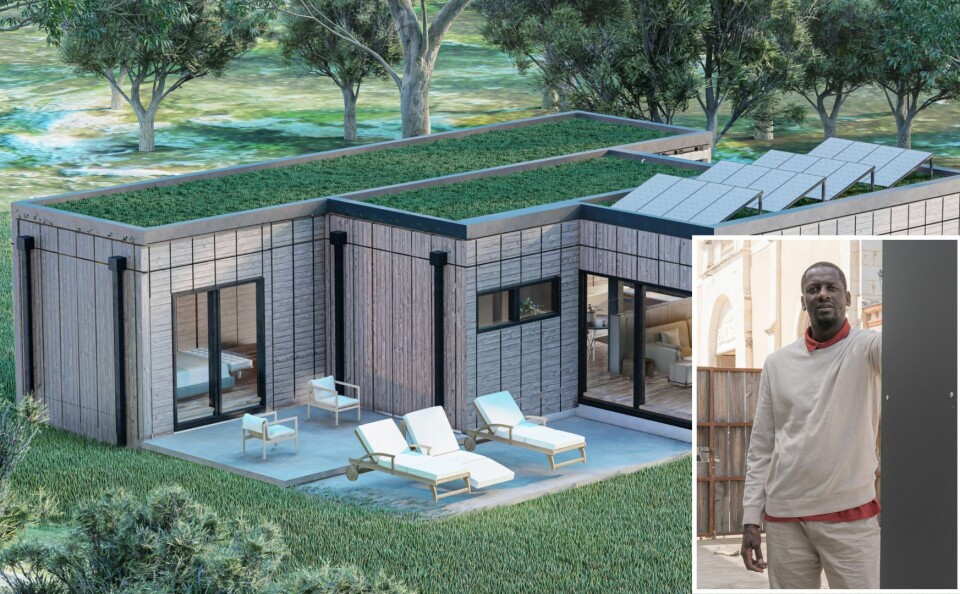French design kit house can be built in a weekend by two people
The ‘flat-pack’ home requires no heavy lifting or construction experience to erect
CGI of what a finished kit house looks like; Demrea co-founder Issa Dia with one of the lightweight wall panels
Demrea
A long weekend and two people are all it takes to erect a pioneering lightweight kit house designed in France.
Once foundations have been laid and tested, panels made from wood fibre with plastic resin exteriors can be put together quickly without lifting equipment.
The heaviest parts of the kit, the wall panels, weigh just 45kg.
Demrea co-founder Issa Dia said: “We set out to design a house that can be built in three days by two people who have no construction experience.
“The house is designed from the start to be very green in every respect, with hemp or cotton insulation and wood panel interiors for the walls, and a similar construction for the flat roof.”
Read more: Couple who built a straw bale house in France share their one regret
‘You can build the house without lifting equipment’
Mr Dia, who has spent most of his career as an economist specialising in construction projects, said the kit was inspired by discussions on how to make house-builds easier.
“Over the years, health and safety regulations have greatly changed modern construction sites,” he said.
“Workers seldom have to lift heavy objects now like they did in the past, when sacks of cement were 50kg [they are 35kg now].
“However, building a house still occasionally means you have to lift heavy parts, such as lintels or pallets of roofing tiles.
“We wanted to design something without any heavy parts, which means you can build without a crane or other lifting equipment.”
Panels clip together for a waterproof seal
The company also boasts an innovative system of fixing the prefabricated panels together – they clip into galvanised steel connectors, ensuring waterproof joints.
The flat roofs can be covered in 10cm of soil and planted with grasses, without additional reinforcing. They are also easy to install solar panels on.
Currently, the company advertises three different kits ranging from 35 m², to a 70m² property.
It is taking pre-orders and is in the process of raising the final funds it needs to start production at a factory at Châteauroux (Indre).
Complete houses work out at €1,800 per m²
The exterior panels are made in France by a Dutch company called Trespa. It uses a high-pressure process to make the composite material, which can be sawn like wood.
Trespa did not respond to a question about the composition of the resin, but its website says its products can be recycled at the end of their lifespan into, for example, plastic chairs.
Most resins in composite materials come from oil, but there are some vegetable ones too, usually based on pine tree resin.
Prices for complete houses, including everything except furniture and electrical equipment, are set at a competitive €1,800 per m².
Drawings and specifications supplied for planning applications
Before the kits arrive, the building site must be levelled, and reinforced concrete pillars installed to take the main structure. The pillars must be certified by experts before building can commence.
Read more: What are the rules for demolishing and rebuilding property in France?
These preparations can be done by the builders themselves or by Demrea partner companies. If the latter, the standard 10-year house-building guarantee applies.
Demrea also supplies architect drawings and specifications for planning applications, if desired. For a fee, it can handle the entire planning process.





























